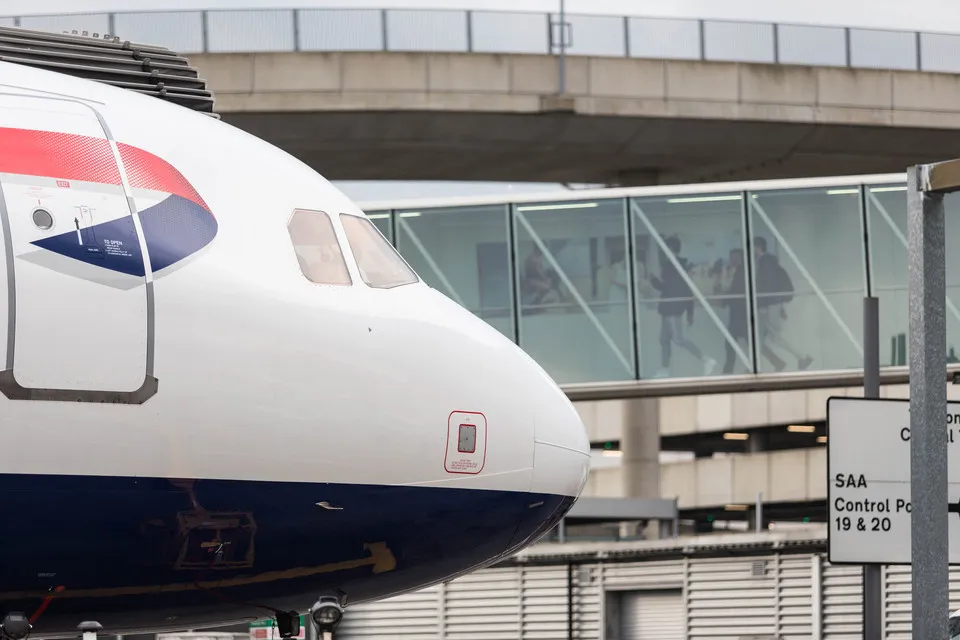
Airlines call for urgent action on Brexit
Nov 08, 2017

Airlines are urgently calling for action regarding Brexit's impact on the aviation sector. With ongoing uncertainties surrounding travel regulations and air traffic rights, industry leaders emphasize the need for a clear framework to ensure seamless connectivity between the UK and EU countries. They warn that prolonged indecision could lead to operational disruptions, affecting both passenger travel and cargo services. The aviation industry, which has already suffered due to the pandemic, stresses that timely government intervention is crucial to safeguard jobs, maintain competitiveness, and support economic recovery. A collaborative approach is essential for a sustainable future in air travel post-Brexit.
Impact of Brexit on the Airline Industry
The aviation sector has been one of the most affected industries post-Brexit. Airlines are calling for urgent action to mitigate the negative effects of this political transition. The uncertainty surrounding air travel regulations, aviation rights, and operational procedures has left many airlines in a precarious position. Industry leaders are advocating for clarity and stability as they navigate this new landscape.
Regulatory Challenges
One of the major concerns for airlines is the regulatory framework that governs their operations. The UK’s exit from the EU has resulted in a need for new agreements that ensure seamless travel between the UK and Europe. The absence of a comprehensive aviation agreement could lead to significant disruptions in flight schedules and increased operational costs.
According to a recent report, more than 60% of airlines surveyed indicated that they are uncertain about the future regulatory environment. This uncertainty can directly impact their ability to plan routes, manage fleets, and set ticket prices. To illustrate this, the following table summarizes key concerns raised by industry stakeholders:
| Concern | Percentage of Airlines Affected |
|---|---|
| Regulatory Uncertainty | 63% |
| Operational Costs | 57% |
| Flight Schedule Disruptions | 55% |
| Passenger Rights Issues | 50% |
Passenger Travel Rights
Another significant issue arising from Brexit is the potential impact on passenger rights. Airlines are advocating for a common framework that protects travelers while allowing for flexibility in operations. The "EU261 regulation", which sets out compensation for flight delays and cancellations, is a critical piece of legislation that may be affected. Airlines are urging both governments to establish a similar framework that provides equal protections for travelers.
Without a clear understanding of how passenger rights will be managed post-Brexit, airlines face the risk of legal challenges and reputational damage. This uncertainty could deter travelers from booking flights, further complicating the already challenged aviation market.
Airline Industry Responses
In light of these challenges, airlines are taking proactive measures to address the implications of Brexit. Many airlines are investing in technology and resources to better understand the evolving regulatory environment. For example, "data analytics" tools are being employed to analyze potential impacts on flight operations and customer service. This strategic approach can help airlines adapt quickly to new regulations as they arise.
Furthermore, airlines are engaging in direct discussions with government officials to advocate for favorable conditions. Initiatives such as the development of a joint "UK-EU aviation task force" have been proposed to create a platform for dialogue and collaboration, ensuring that both parties can work towards a mutually beneficial outcome.
Future of Air Travel Post-Brexit
The future of air travel post-Brexit remains uncertain, but there are signs of optimism among industry leaders. Many airlines believe that with the right agreements in place, the aviation market can thrive despite the challenges. The key to this success will be the establishment of clear, consistent regulations that facilitate travel and protect the interests of both airlines and passengers.
As we move forward, it is crucial for both the UK and EU to prioritize aviation as a key element of their economic relationship. The "economic contribution" of the airline industry cannot be overstated, with millions of jobs and billions in revenue at stake. Stakeholders must recognize the importance of a robust and resilient aviation sector to support broader economic recovery efforts.
Conclusion
In conclusion, the call for urgent action on Brexit from airlines highlights the pressing need for clarity and cooperation in the aviation sector. The challenges posed by regulatory uncertainty and passenger rights issues require immediate attention from policymakers. As the industry navigates this new landscape, ongoing dialogue and collaboration between the UK and EU will be essential to secure a prosperous future for air travel.
By addressing these concerns head-on, airlines can continue to operate effectively and provide essential services to travelers. The "urgency of action" cannot be overstated; the time for decisive measures is now. Airlines, regulators, and governments must work together to ensure the resilience and growth of the airline industry in a post-Brexit world.
Related Articles

Explore Thailand: The Best Islands to Visit for Paradise, Adventure, and Relaxation

The Ultimate Guide to the Best Islands in Thailand for Your Next Getaway

Do babies need passports? How to get a passport for a newborn

How to get a U.S. passport fast: here’s how to expedite the process

What is Mobile Passport Control: 5 reasons why you should use it

SENTRI vs. Global Entry: A detailed guide

Do you need a passport to go to the Bahamas? Let’s find out

Do you need a passport to go to Mexico? A detailed guide

Do you need a passport to go to Canada? We got the answer

Do You Need a Passport for a Cruise: An Essential Travel Guide

Booster Seat Requirements: All the Rules to Follow in Your Rental Car

What Are the World’s Most Powerful Passports, and How Does Yours Rank?

How to Take a Passport Photo at Home: A Helpful Guide

You've got to have heart! Southwest's new livery

Your opinion: Should water be free on low cost carriers?

Young women bolder than guys as solo travellers
